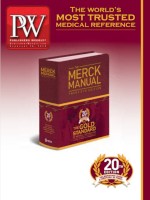With the release of The Post, the story of the Pentagon Papers has rekindled public conversation about a free press in a democratic society. The film’s dramatization of the Nixon administration’s efforts to prevent the Washington Post from publishing the Pentagon Papers resonates today, when the executive branch routinely attacks the media, most recently by attempting to suppress Henry Holt’s publication of Michael Wolff’s Fire and Fury.
Left untold in the film is the role of book publishers in bringing the papers to the public and ensuring that they would be accessible to future generations. A month after the June 1971 publication of excerpts in the Times and the Post, Bantam published a mass market synopsis edited by Neil Sheehan. In October, Beacon Press released a more extensive four-volume set of the papers acquired from Sen. Mike Gravel, who read them into the Congressional Record.
Gravel had approached dozens of publishing houses that rejected the project due to financial and political concerns. He finally found a home for the papers with Beacon Press, the publishing arm of the Unitarian Universalist Association. (Gavel was a Unitarian Universalist himself.)
According to an article in the association’s magazine, Beacon took the risk because “freedom from bureaucratic censorship is one of the objectives of the press.” In his memoir, A Political Odyssey, Gravel quotes Gobin Stair, then the director of Beacon Press, as saying that the public was entitled to full disclosure, not just “sketchy journalistic synopses.” In pre-internet days, print publication was the only way to ensure that.
At 7,000 pages, the papers were the most ambitious venture in Beacon’s long history and an editorial nightmare. Stair later recalled in an interview, “The pile of stuff that was the Pentagon Papers was so confused and so mixed up that everybody who got near it knew this couldn’t possibly be a book.” The cost of producing 20,000 copies and the associated legal fees presented a huge financial burden for the press.
Once published, the papers sparked a larger problem: political persecution. President Nixon, who had personally called Stair to dissuade him from publishing the papers, renewed his attacks. Stair was subpoenaed to appear at Daniel Ellsberg’s trial, J. Edgar Hoover approved an FBI subpoena of the UUA’s bank records, and FBI agents appeared at the offices of the press.
Beacon’s publication of the papers figured in a case heard before the Supreme Court, which ruled against it. In his dissent, Justice William O. Douglas wrote, “It is the government, and not the press, that is lawless.”
Beacon received an outpouring of support from religious organizations—including from the Unitarian Universalist Veatch Program at Shelter Rock and publishing industry associations. Robert Bernstein, then the Random House CEO and AAP chair, called on publishers to create a $100,000 Beacon Press defense fund and led by offering a $2,500 donation. The American Library Association adopted a resolution of support. UUA president Robert West later commented to a Beacon staff member that “the librarians were the most intensely concerned people I encountered who weren’t Unitarian Universalists.”
In June 1972, the Watergate break-in drew the FBI’s attention, effectively ending the government’s campaign of intimidation against Beacon and ultimately leading to Nixon’s resignation.
In 2011, the Pentagon Papers were declassified. Book publishers, however, had ensured that they were available 40 years earlier. During that time, these papers had done their job of informing the public, thus hastening the end of the war and indirectly leading to the resignation of a president.
As Post editor and Beacon author Ben Bagdikian wrote, the story of the Pentagon Papers “remains a warning that every generation must protect its own constitutional liberties.” At a time when these liberties are once again under threat, we should remember the power of our industry and the crucial responsibility we have to maintain an open and democratic society.
Tom Hallock is the associate publisher and Christian Coleman is the editor of Beacon Broadside at Beacon Press.



 Volume 265
Issue 9
02/26/2018
Volume 265
Issue 9
02/26/2018





